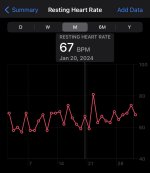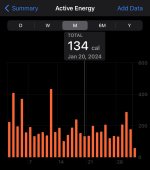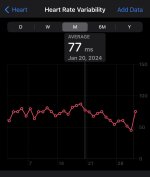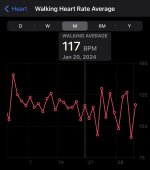Hip
Senior Member
- Messages
- 18,116
Several long COVID patients report substantial improvements within days from the first generation antihistamine diphenhydramine (Benadryl) 25 mg before bed. See:
Other long COVID patients report major improvements from the first generation antihistamine hydroxyzine 25 mg before bed. See:
Reading through antihistamine reports on a Reddit long COVID sub-forum, it seems that long COVID patients' responses to antihistamines are individual, so if experimenting with antihistamines, it might be a good idea to test more than one, to see which works best.
H1 Versus H2 Antihistamines
H1 antihistamines: loratadine, cetirizine, levocetirizine, fexofenadine, diphenhydramine and hydroxyzine.
H2 antihistamines: famotidine, nizatidine, cimetidine and ranitidine (ranitidine was taken off the market).
Note: H1 antihistamines are usually taken for allergies, asthma, urticaria, allergic rhinitis, etc. H2 antihistamines reduce gastric acid secretion, which is the main reason they are prescribed. But H2 antihistamines will not reduce the amount of stomach acid already present in the stomach at the time of taking them.
Drowsiness With First Generation Antihistamines
Note that first generation H1 antihistamines like diphenhydramine, hydroxyzine and cinnarizine cross the blood-brain barrier and cause drowsiness, impaired short-term memory and concentration problems. Thus first generation antihistamines are best taken before bed.
Second and third generation H1 antihistamines like loratadine, cetirizine, fexofenadine and levocetirizine do not easily cross into the brain, and thus do not cause these side effects, so can be taken during the day.
Long COVID Studies on Antihistamines
A study observed that the H1 antihistamine loratadine 10 mg twice daily in combination with the H2 antihistamine famotidine 40 mg once daily led to improvements in 72% of long COVID patients.
In a case report study, famotidine improved LC neuropsychiatric symptoms.
ME/CFS Patient Anecdotes With Antihistamines
- Benadryl seems to have helped me
- The “best” I feel is when I take diphenhydramine (Benadryl)
- Back to Benadryl cause it’s the only antihistamine that helps me
Other long COVID patients report major improvements from the first generation antihistamine hydroxyzine 25 mg before bed. See:
- Hydroxyzine shown to have antiviral effects (and resolves 90% of my symptoms)
- Hydroxyzine is a life saver but concerned about long term
Reading through antihistamine reports on a Reddit long COVID sub-forum, it seems that long COVID patients' responses to antihistamines are individual, so if experimenting with antihistamines, it might be a good idea to test more than one, to see which works best.
H1 Versus H2 Antihistamines
H1 antihistamines: loratadine, cetirizine, levocetirizine, fexofenadine, diphenhydramine and hydroxyzine.
H2 antihistamines: famotidine, nizatidine, cimetidine and ranitidine (ranitidine was taken off the market).
Note: H1 antihistamines are usually taken for allergies, asthma, urticaria, allergic rhinitis, etc. H2 antihistamines reduce gastric acid secretion, which is the main reason they are prescribed. But H2 antihistamines will not reduce the amount of stomach acid already present in the stomach at the time of taking them.
Drowsiness With First Generation Antihistamines
Note that first generation H1 antihistamines like diphenhydramine, hydroxyzine and cinnarizine cross the blood-brain barrier and cause drowsiness, impaired short-term memory and concentration problems. Thus first generation antihistamines are best taken before bed.
Second and third generation H1 antihistamines like loratadine, cetirizine, fexofenadine and levocetirizine do not easily cross into the brain, and thus do not cause these side effects, so can be taken during the day.
Long COVID Studies on Antihistamines
A study observed that the H1 antihistamine loratadine 10 mg twice daily in combination with the H2 antihistamine famotidine 40 mg once daily led to improvements in 72% of long COVID patients.
In a case report study, famotidine improved LC neuropsychiatric symptoms.
ME/CFS Patient Anecdotes With Antihistamines
- One ME/CFS patient took cimetidine (Tagamet) 200 mg every other day, and was able to go back to work.
- One ME/CFS patient with moderate ME/CFS which appeared after catching dengue virus moved to near remission after starting cinnarizine 12.5 mg twice daily. Cinnarizine is also a calcium channel blocker, and calcium channel blockers like nimodipine have been found effective for ME/CFS.
Last edited:




